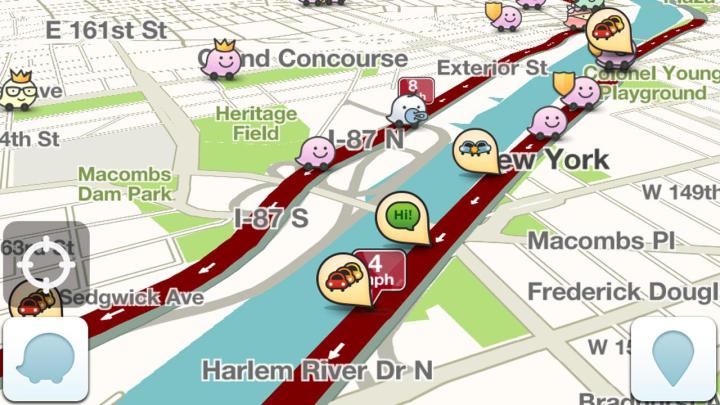
As technology continues to integrate drivers with their cars, it may actually bring motorists together as well.
One example of this is an app called Waze, which brings driving communities closer via the transfer of real-time traffic data and local road conditions.
These ‘Wazers’ can alert other app users of speed traps, accidents, traffic jams, and even the best gas prices by placing notifications over a simple, community-edited map.
Related: Analyze your commute with the Web Dashboard by Automatic
Waze just took crowdsourced data exchange one step further, by integrating local governments and law enforcement agencies into the mix.
With the Connected Citizens Program, Waze now accepts input from municipal bodies, which can alerts drivers of construction, marathons, floods, block parties, detours, and anything else that could potentially slow down their commute.
“Waze was built by the global community with a sense that we’re all in this together,“ said Di-Ann Eisnor, head of Growth at Waze. “An affordable, accessible mobile platform like Waze eliminates superfluous layers and enables citizens and cities to connect directly.
Given the fact that the app actually advertises speed trap warnings as a benefit, though, it’s worth noting that some Waze’s features may change with the union of law enforcement into the app itself.
The first ten partners in the program, called the “W10” by Waze, are Rio de Janeiro, Brazil; Barcelona, Spain; Jakarta, Indonesia; Tel Aviv, Israel; San Jose, Costa Rica; Boston, Massachusetts; Los Angeles County, California; as well as the New York Police Department and the states of Utah and Florida.
(Photo via Waze)


